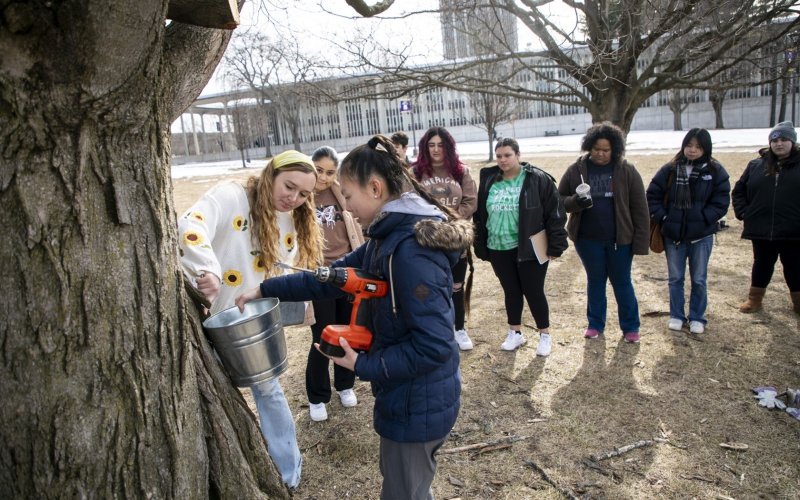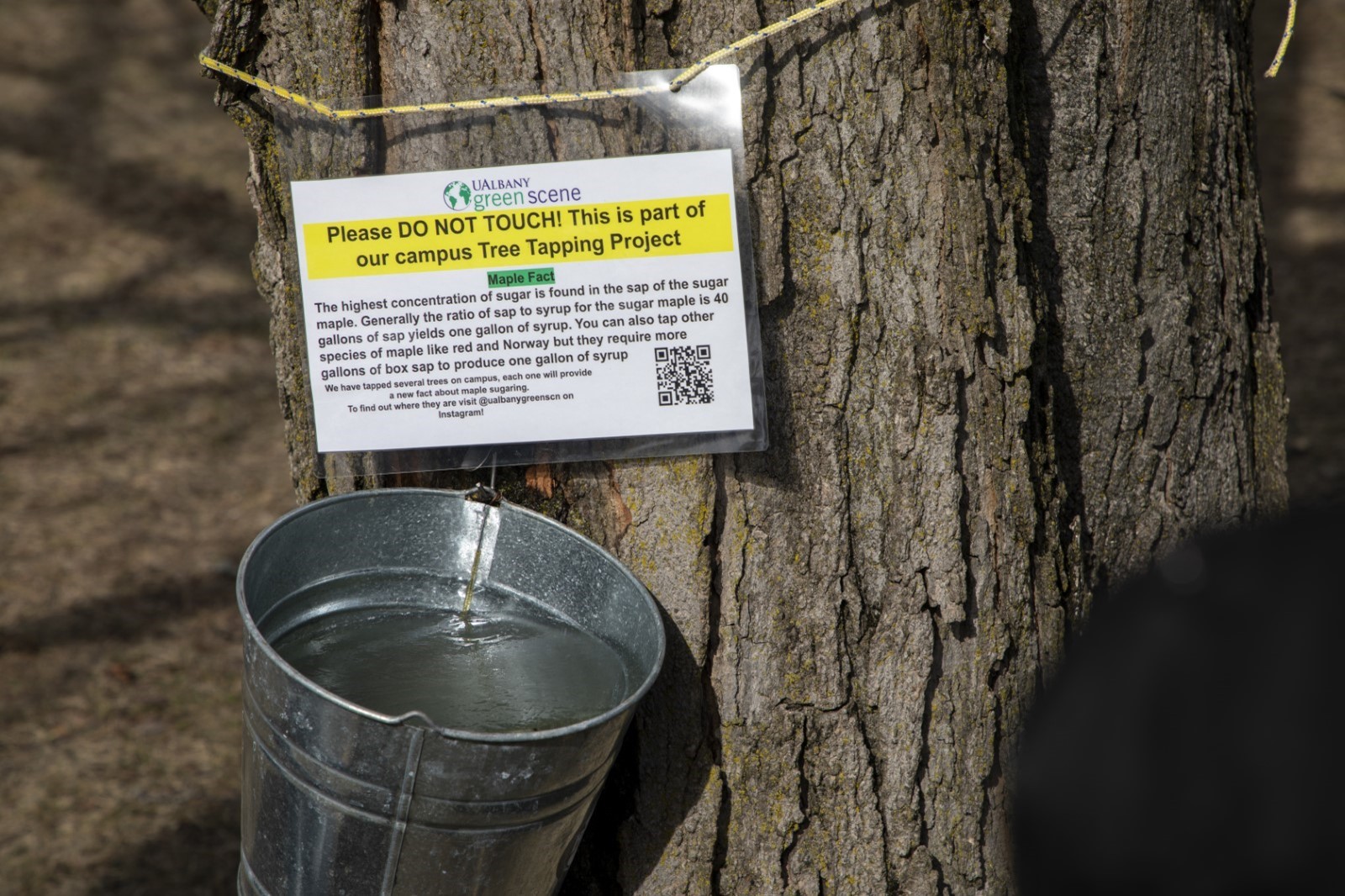Spring Sweets: Students Tap Maple Trees on Campus, Make and Share Maple Syrup

ALBANY. N.Y (April 18, 2023) — On a cold day in March, undergraduate students in UAlbany Writing and Critical Inquiry Kayla Adgate’s nature writing class stood around a maple tree on Dutch Quad as it was tapped by the University’s Office of Sustainability.
Maple sap contains sugars, amino acids and other compounds that create that unique syrup taste after the sap is boiled down. While it takes at least 40 years for a maple tree to grow big enough to tap, the tree can be tapped indefinitely, as long as it's on a good growing site and treated well.
This is the first year that the Office of Sustainability is tapping maple trees on campus.
“My students are writing about the natural environment,” said Adgate, a WCI instructor and and English PhD student. “I thought this was a great, hands-on opportunity for them to get outside of the classroom and into nature to observe and learn.”

The maple tree tapping project was led by students Olivia Dirla, operations manager for the Office of Sustainability, and Magnolia Roosa, program assistant.
During the demonstration with Adgate’s class, students drilled holes into the tree to collect the sap and tasted fresh samples. Each tree that was tapped included signage from the UAlbany Green Scene where students can learn more about maple trees and the tapping process.
“We’ve been looking for ways to increase student engagement with the Office of Sustainability,” Dirla said. “Tree tapping was something we were already going to do, so we wanted to get students involved and hopefully pique their curiosity.
“There have already been multiple classes watching our demonstrations, and we hope to continue to engage with others that are interested in the future. It’s a unique way for students to learn about our office and the resources we offer them.”
It generally takes about 40 gallons of sap to make one gallon of maple syrup. The campus tapping project yielded around 32 gallons of sap and several people, including Dirla, Roosa and Sustainability Director Mary Ellen Mallia, boiled the sap down at their homes.
The result: about a gallon of syrup. "Because sap was cooked in various batches by different people the final thickness of the syrup produced also varied from very viscus to more liquid," said Arturo Lua Castillo, graduate assistant in the Office of Sustainability. "Even the more liquid syrup was still delicious and brown!"
And that delicious brown syrup was shared with about 50 people during a pancake night hosted by the Office of Sustainability on April 6.




